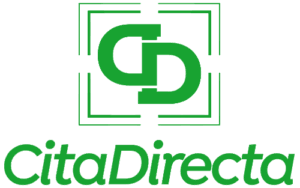The small -scale business environment is the recently proposed HR 3898, which is an effective consideration of modern infrastructure, an ACT (Contractive Infrastructure) method HR 3898 will have a significant change if you get traction from Congress. The National Federation of Independent Business (NFIB), a major advocate for small business profits, confirmed this as a pivotal moment to activate the permit process that dominates water quality.
NFIB’s recent announcement emphasizes the urgent need for a simplified permit framework to directly authorize small companies according to the Clean Water Act (Clean Water Act). Adam Temple, vice president of NFIB advocacy, has changed frequently, emphasizing the problems faced by many small business owners today. «In the last decades, small business owners have not been able to plan the future by dealing with continuous changes in CWA.»
At the core of the licensing law is that there is a promise that the likelihood of prediction will increase in the allowable landscape, and Temple claims that it will restore the original intention of CWA. This clarity is a valuable for small companies to move forward, so that they can better assign resources, plan projects, and ultimately grow.
Some major benefits are prominent for small business owners. First, the license method reduces the risk of unplanned delays by improving the predictions when obtaining the required permission. This is important for construction, manufacturing and service -based industries that depend on timely approval to start the project. In addition, by simplifying the licensing process, companies can save both the time and cost related to the long government process, which improves overall efficiency.
In small business entrepreneurs, the potential of growth can be strengthened by past experience of bureaucracy. Temple urged the priority of the law, «This bill will restore certainty of permits and allow small businesses to grow without being disturbed by unclear or excessive government regulations.»
But the owner of small businesses must know the potential tasks that arise in the legislative implementation of this law. The promise of improving efficiency is attractive, but there may be complexity related to understanding new guidelines and complying with modified regulatory environments. Small companies are often operated as limited resources, so adaptation to changing laws can put an additional burden on operating and financial plans.
It is also aimed at clarifying the regulations, but it is important to recognize that the actual launch depends on the way local, state and federal agencies interpret and execute these new guidelines. Small business owners must actively maintain information on these changes in order to effectively take advantage of the benefits of permits.
In a wider context, the license is consistent with the continuous discussion of infrastructure modernization and environmental responsibility. As society continues to advocate responsible business practices, small business leaders may not only comply with new regulations, but also adjust the operating model to reflect the promise of sustainability.
The environment of allowing and compliance is an important concern for small business owners. Licensing methods can be used not only to simplify the process, but also to strengthen the trust needed for companies to invest in the future. Since small businesses are the backbone of the US economy, the successful passage of HR 3898 can serve as a catalyst for growth, innovation and long -term sustainability.
Support for NFIB’s permit emphasizes a wide range of promises to create an environment that will help small business success. Those who are interested in more information can access the entire letter that supports legislation. here.
Small business owners can better explore the complexity of regulatory compliance and better explore the location that can grow in a market that will better explore the complexity of regulatory compliance and constantly evolve.
Image through ENVATO




